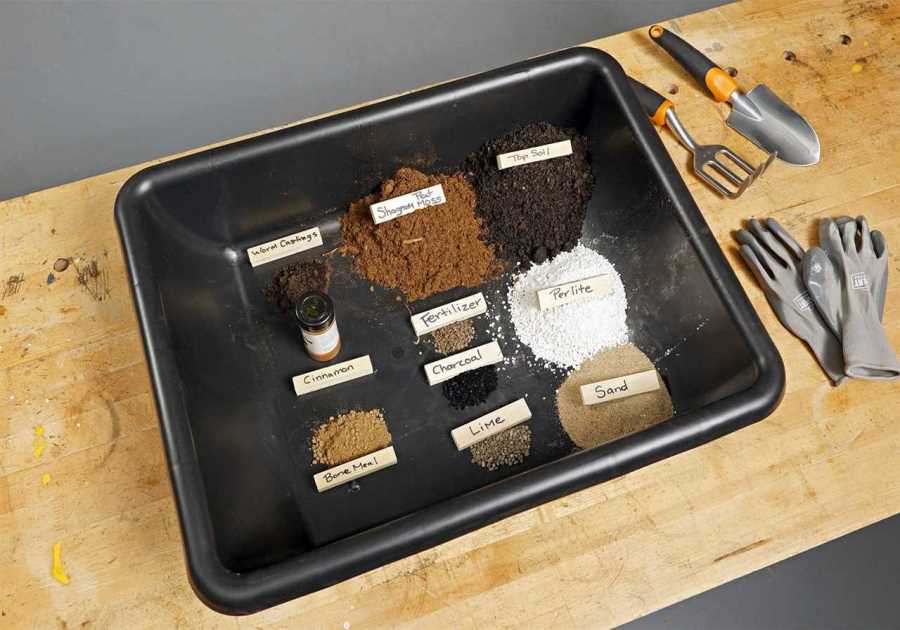Over the past six years, James Hoffmann, former World Barista Champion has been taking diehard coffee enthusiasts (and the merely coffee-curious) from all around the world down illuminating rabbit holes: from product reviews to expert tips and techniques, to entertaining history lessons.
Hoffmann's disarming humor mixed with an utmost attention to detail and an unpretentious approach has earned him 1.85 million YouTube subscribers and over 246 million views for his videos to date—making him the world's most popular voice in coffee.
What sets his truly unbiased product reviews apart is that he funds all of them through Patreon, and then gives away the gear to his supporters after he reviews it. These same supporters also help him produce only the videos that he wants to make—the YouTube equivalent of the quirky indie feature—without concern for clickbait.
We spoke with Hoffmann to get his best advice for anyone looking to upgrade their home coffee experience and to find out what excites him the most about where coffee culture is headed.
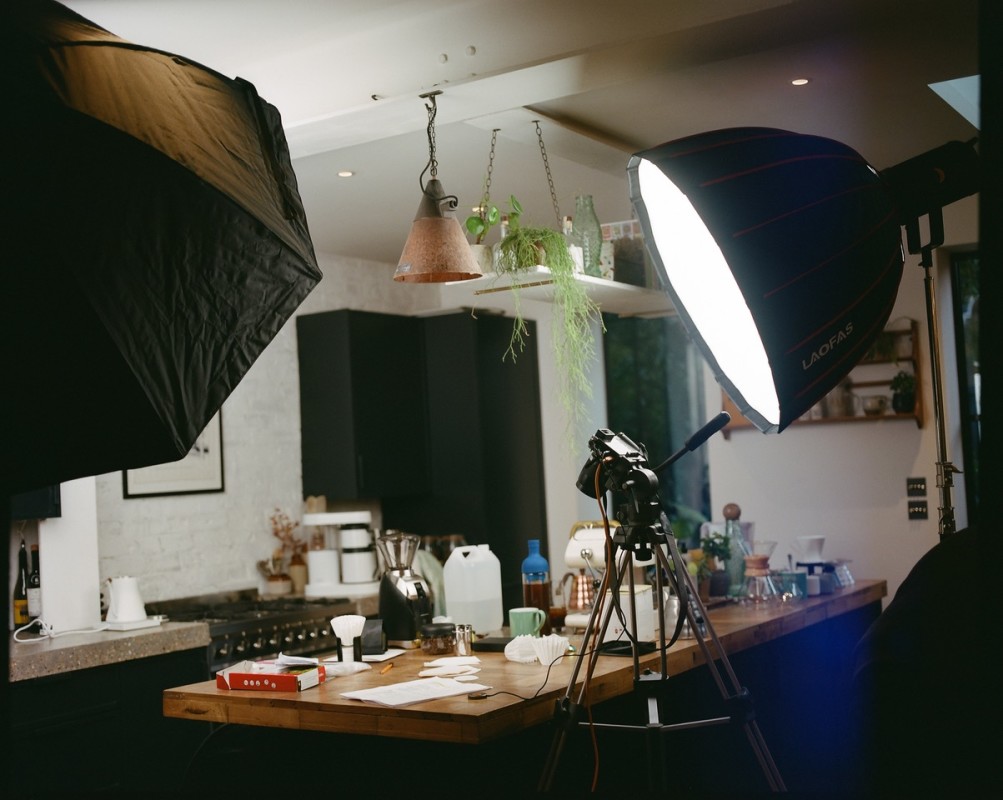
Courtesy Image
Men’s Journal: What ignited the passion for coffee in your life?
James Hoffmann: I was interested in coffee before I even liked the taste of it. I got a job selling little domestic espresso machines in a department store and I thought, "I should know something about these things." And there was only one book in the local bookshop about coffee at the time. It was this dude who starts in Ethiopia and follows the journey of coffee around the world, called The Devil’s Cup, by Stewart Lee Alan.
And I read the book and I was like, "This is very entertaining, and coffee is super interesting." It’s just knitted into every culture now, in different ways. Like the way it’s a part of Italian culture is totally different to the U.S. culture, or totally different to Scandinavian culture or anything else. It’s this really interesting thing that is also kind of wild—people are smashing the seeds of a tropical fruit tree and putting them in hot water every morning like that’s normal. And it’s not normal. It’s a really wild thing that we’ve all done.
So, I thought, "Coffee is interesting, I should probably learn to drink it." And I learned to like the taste of espresso, which, looking back at the coffee I was serving, was a heroic feat. It’s a pretty compelling beverage, chemically and otherwise. So that was it for me; initially it was that coffee is just interesting. And that felt like a secret.
For the last 20 years, people who’ve become passionate about coffee have become weird little zealots, because you discover what feels like a hidden world. I had no idea this punishingly brutal, bitter, necessary pain of my morning can be fascinating and delicious and complex and varied. Before that, people told me that coffee tastes like Folger’s or Nescafé when it doesn’t! It’s a lot more. And I think that turns people very passionate, enthusiastic, and slightly weird. And I’m one of them still.
Related: 50 Best Whiskeys in the World 2023
One of the things that fundamentally sets you apart from other reviewers is how you use Patreon to review gear without being beholden to any brands. How did you arrive at that model?
What I want to do is find people, and that’s the challenge of the internet. For me, reviews were a great way to find people, and also to build a relationship with them where they trust me. So, from the beginning, that was a really important base requirement of the videos that I make—that I need to build a trust-driven relationship with you. Because then, you might trust me when I say to experiment and try stuff.
Like everyone else who started making coffee videos on the internet, manufacturers were very quick to be like, "Hey, can we send you something?" And one of them sent me something, and I was like, "This is the video," and they’re like, "We don’t like it. That’s not OK." And I thought, "I haven’t set you up with the expectation that you would be disappointed. I’ve messed this up." I knew I just wanted to be able to make the video. So how do I do that?
At the time, I was vaguely aware of Patreon, and I was like, "Why don’t I try it, and if enough people chip in a couple bucks a month, I might get enough money to buy one espresso machine a month. And I don’t really want to own it, because I have enough coffee stuff in my life. So, then I figured, "OK, well, what better thing than to just give it back to that audience?"
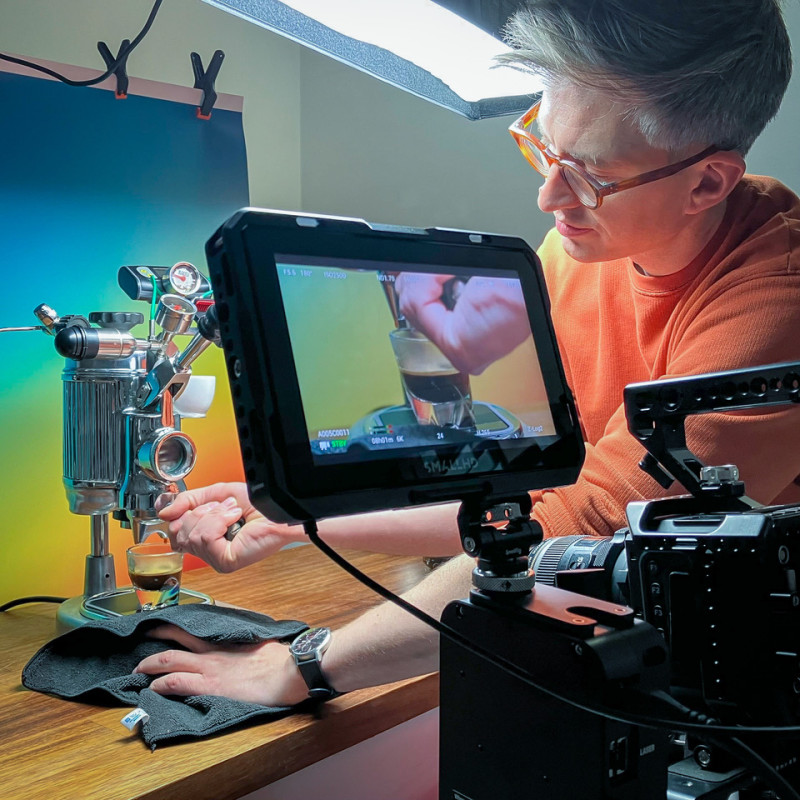
Courtesy Image
What was it like to see it grow the way it has?
It started with the goal of $1,000 a month, and I’ve always left the financial side of my Patreon public. Because, again, it’s about trust more than anything else. And it just kept growing and growing. And eventually I’m thinking, "I can’t review this many machines," and the point of this is not to just give me more money. So, it’s always been a public total, in the hopes of discouraging people from paying. Because I don’t need $50,000 a month, what am I going to do with it? I can hire people, and I can do a better job.
But at the same time, if I’m trying to build a sustainable thing—I sort of hate tipping culture—I should build a sustainable thing on my own, and I shouldn’t be reliant on something like this. But it basically has given me complete freedom to do this, and it still stuns me that more people haven’t adopted a similar model.
Is trust at the heart of your model?
The audience knows that the advertorial-editorial line is blurry. They know that when people say, "They gave me this machine, but they don’t have a say in the video," that there’s a bias there. They understand that. And actually, they would be much happier if you said, "I’m aware this will lead to a bias in this review." I mean, like, it’s the presentation that there’s no bias when of course there’s still bias. I have biases, and I need to tell you about them. If you understand my bias, then you’ll trust me a bit more when I say something.
Related: 7 surprising health benefits of coffee
How did the reviews themselves grow your channel?
Reviews were really great because for a long time the coffee industry didn’t evolve that quickly. We don’t release new products on a tech cycle. And so, if you’re curious about the AeroPress, a review of the AeroPress is kind of evergreen. And that’s a great way for me to find people wherever they are in their coffee journey.
If you take a nice batch brewer for home, let’s say an OXO Brewer, people in the market for that and researching that could be anyone from, "I just want to upgrade my Mr. Coffee to something a bit better," through to "I’m tired of making pour-overs and I want a little help." And that’s great.
I want to meet everybody. I want to find everybody who cares vaguely about coffee. And so, reviews were this really great tool to have a wide-reaching net, to show someone something that would help build a relationship and build trust with them. And then on the upside because of Patreon, I got to do a kind of review that’s really hard to find on the internet.
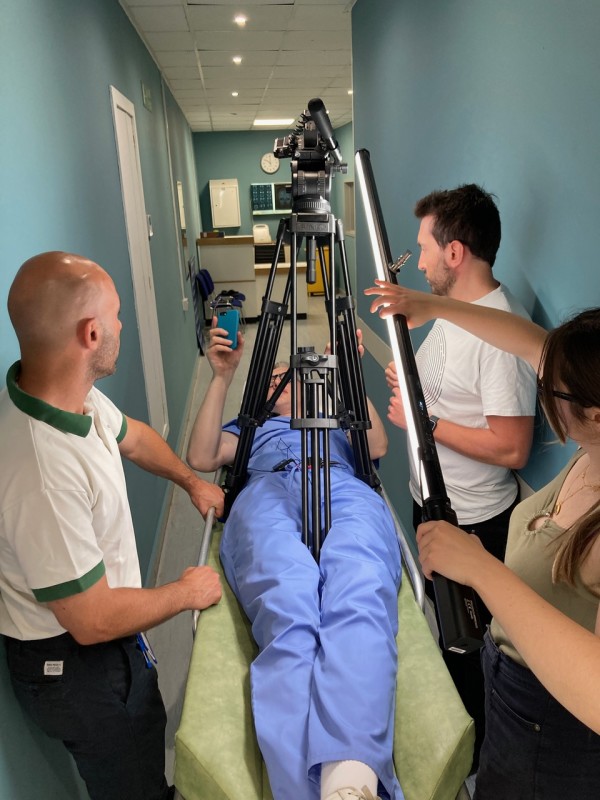
Courtesy Image
Beyond product reviews, with your travel pieces and stories from coffee history, you’ve also created a new production model for short features. Is that something that you think about?
One-hundred percent. I think it’s allowed us to make videos that are risks. Because we’ve got this excess from Patreon, we tend to spend that on more complex projects where maybe we don’t want to put a sponsor section in the video. But I’ve also had enough of a peek behind the curtain about how quickly the costs ramp up when you want to get a little bit more ambitious. And I certainly do want to get a little bit more ambitious. But I’m aware of the order of magnitude the budgets need to jump by, and that’s hard through Patreon.
For my own longevity in this, I need to make things I want to make. That doesn’t overlap entirely with things that YouTube wants me to make. I just feel like we have said it’s blockbuster or nothing now, and all the interesting stuff in the fringes is going away. And I still want to make the interesting stuff on the fringes, but my weird coffee YouTube version of that thing. The mid-budget film, but for YouTube. Because I think it’s necessary. Otherwise, we end up with a ton of the same stuff and a homogenous culture, and it’s very dull and it’s not creatively satisfying.
As far as your distribution platform, is that where you see yourself for the foreseeable future, on YouTube?
YouTube is where the world is when it comes to long form video for knowledge and learning. Like I know people who did an entire house DIY just from YouTube. It’s the place where you go to learn a thing. And then if you can teach someone a thing, you can build a relationship with them by extension. And then you can take them on a journey, and then maybe achieve your nefarious goals of getting them drinking coffee.
What is the one thing that surprises people most about coffee?
The thing that pops up most is, "I just didn’t know it could taste that good." It’s a classic, "I didn’t know that I didn’t know something." A lot of people are like, "Why are people so happy with bad coffee?" And that’s a bit like saying, why are people not angry that bourbon doesn’t taste like grapefruit? Why would they be mad that it doesn’t taste like someone else? And so, we treat people who drink conventional coffee that way—"Why aren’t you mad that it isn’t sweet, complex, fruity and acidic and fun?" Because it never has been.
And so that moment of understanding that coffee is this whole other world of flavor is a huge revelation to people. And that’s the bit where it feels exciting to me. Because whatever your preference is as a coffee drinker, you can like the darkest roast, the most bitter thing, but there’s probably something out there you’d like even more.
There’s always more. And that’s the thing that I think is kind of motivating and encouraging for me when I meet people with coffee preferences a long way from mine. Why bother talking to them? Because they could still enjoy whatever they like, but there’s a deepening of that enjoyment. That’s the motivator—that coffee can be delicious in a very unexpected and complex way.
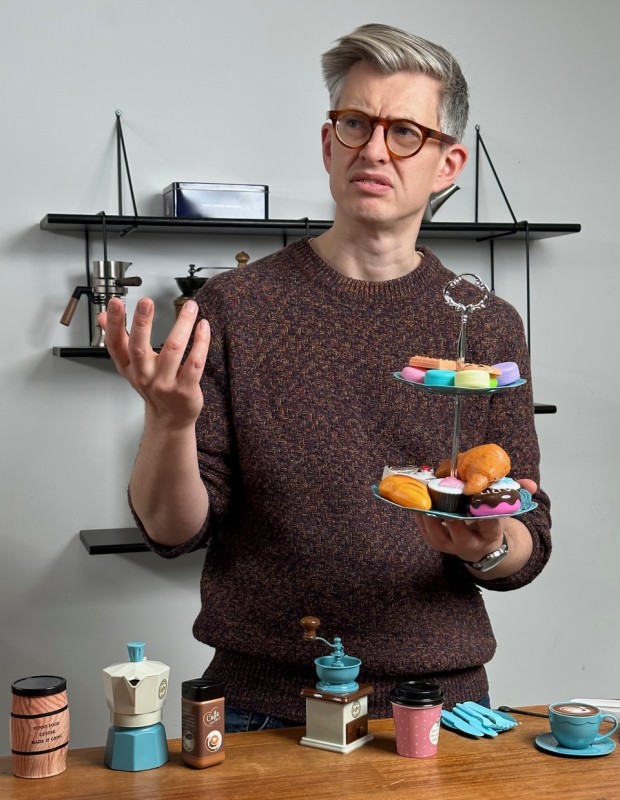
Courtesy Image
As the person who has pulled this curtain back for so many people, what has been your biggest surprise?
As an industry, we really struggled to connect with an audience for a long time. You would see the roasters doing the brew guides, and making videos and that kind of stuff, and no one really cared. And I think it meant that I definitely vastly underestimated the size of the interested audience. It’s huge. If you can give them a reason to be interested, then lots of people are interested.
The brew guides, the same old things, are not interesting to people. But coffee is interesting to people if you show them interesting stuff. And so, for me, I’m actually surprised that 3 or 4 million people have watched some of these videos. Like, the sheer number of humans willing to sit down with me and engage and put it into practice is astonishing—and I don’t feel like I’ve reached everyone yet. I think the size of the audience that wants to hear someone talk about what salt does to the perception of bitterness in a cup of coffee, it’s a lot of people. It’s just very heartening, very motivating, and very exciting how interested people can be.
Related: Timeless Travel Advice From Anthony Bourdain
Is there one tip you share with people that will change their relationship with coffee the most?
[There's] the obvious one that everyone’s heard—to grind your coffee fresh. But ultimately, it’s to do a comparative tasting. Like, just have two things that are different side by side. The number of times in coffee that we do comparative tasting compared to wine, you know, everyone gets that wines are different because they’ve done a tasting. We’ve made wine tasting really normal.
People have done a little flight of beers and they’re like, "Of course these are different. Why would I not think that?" You don’t get to do that with coffee and when you do it, it’s like, "Oh, yeah, what else is there?” This is better than this, this is a little bit more bitter, or this is a little fuller, richer, and sweeter, and this is a little bit more fruity. That’s the mindset shift of like, "OK, what else is there that I want to have?" And so that’s why for me, comparative tasting is the No. 1 thing that yields the biggest, strongest, and most satisfying response.
We [in the coffee industry] tend to turn tastings into a ceremony with rules and everyone’s a bit awkward and we’re gonna give you tasting notes. No, no, just taste this and taste that. Are they different? How are they different? Which one do you like? That very simple experience that’s so normal in so many industries and still so rare coffee. And it’s so effective and fun.
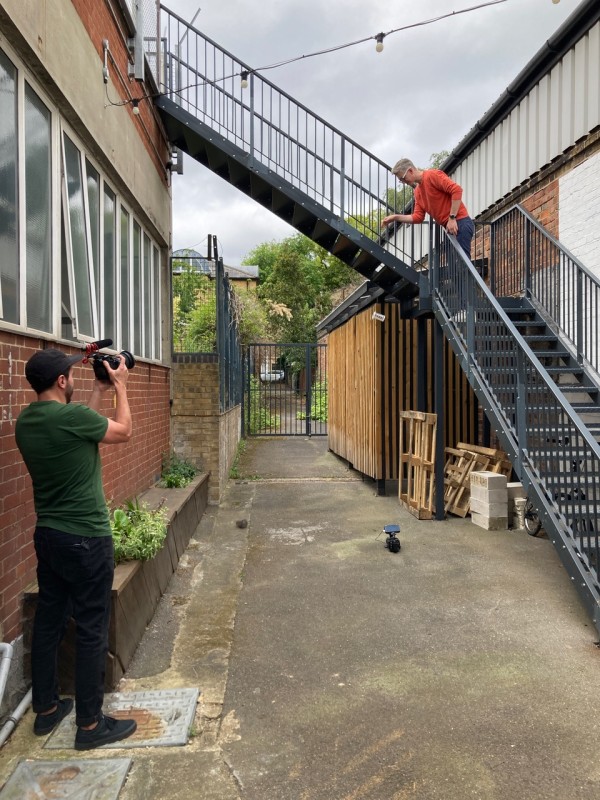
Courtesy Image
If someone is trying to upgrade their coffee experience at home, what gear will make the biggest difference?
I think now, finally, we’re at the point where genuinely good coffee grinders exist at lower prices. And a good coffee grinder, like a good adjustable burr grinder, means that whatever you end up doing—you might go into espresso, or you might go into drip—you’re covered. You’ve got the central key piece of equipment. And after that, as soon as possible, you’ve got to start hunting down the raw materials that you like, because we get into a mindset that gear will fix your problem, but gear will only give you incremental improvements against the raw material that you start with.
And equipment companies don’t want to tell you that story. They’re like, "Our grinder will change everything," or "Our espresso machine will change everything," and it won’t. The coffee that you bought tastes like the coffee that you bought. So very quickly, your experience gets upgraded not through equipment, but through like the beans themselves. And that’s about finding a roaster you like.
When should people go beyond a good grinder to other gear upgrades?
You might start to bump up against certain things in your workflow that you might want to fix. Or you might never bump up against anything; you might just make a French press every day from a really good grinder, great beans, great fresh water, and that’s it. That is a pinnacle of coffee. You don’t have to go higher if that’s where you’re happy.
Or you go down the route of a pour-over and then you can get to a weird, zero bypass pour-over if it’s fixing a problem for you. But in an era where we probably need to look a little bit more thoroughly at our consumption of things, I don’t want to be like "Just buy more shit." Because I don’t really want you to. And I know that’s how the world goes round. But you know, buy the better coffee, drink it, enjoy it, buy some more. It’s a pretty short cycle, it’s pretty low risk. But I still would say a good grinder is the linchpin underneath it all.
Related: Best Coffee Subscriptions and Gear for Better Home Brewing
What excites you the most about the future of your coffee content?
I guess there’s two pieces to that, and one is investing in the science stuff. We just had a machine installed in the new studio space that I can’t legally talk about yet. But it’s gonna open up more analysis possibilities. And at the same time, I’m also aware that while citizen science is good and important, we want to liaise with bigger institutions.
I have this really weird platform where I have total freedom to do whatever I want. And I don’t want to act in the purest of self-interest. I want to act in a way that’s beneficial. I want to make the things that no one else can make. That’s my obligation. And that might be videos about coffee grinders that are way more technical than anyone else can make, but ultimately practical and useful.
And then I want to make bizarre television that I think would be genuinely interesting to more people that no one else but me is going to make. So, for me, I want to be a better filmmaker, I want to be a better presenter, I want to be a better writer. I also want to facilitate better research and ultimately, in the service of people who drink and enjoy coffee every day. That’s it, I want to do better entertainment, better education, and I have a platform to do that and that’s very exciting for me.
-----------------------------
By: Stinson Carter
Title: Coffee Guru James Hoffmann’s Favorite Advice For Upgrading Your Daily Coffee
Sourced From: www.mensjournal.com/food-drink/youtube-coffee-guru-james-hoffmann
Published Date: Fri, 13 Oct 2023 19:52:38 GMT
Did you miss our previous article...
https://conservativedailytimes.com/health-fitness/the-chefs-making-seaweed-the-future-of-food
.png)





